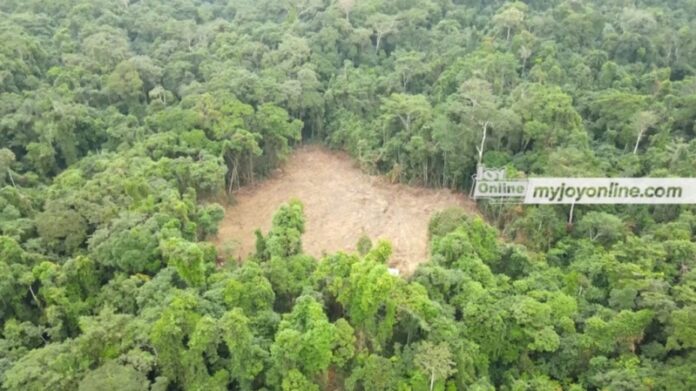The Ghana Academy of Arts and Sciences (GAAS), the country’s leading learned society, has called for urgent action from Parliament to revoke the Environmental Protection (Mining in Forest Reserves) Regulation 2022 (L.I. 2462).
This petition reflects deep concerns over the adverse impacts of illegal mining, also known as “galamsey,” on Ghana’s forest reserves and broader environmental health.
In a formal petition addressed to the Rt. Hon. Speaker of Parliament, GAAS outlined its grave concerns regarding the detrimental effects of mining activities in protected forest areas.
Established by an Act of Parliament in 1959, GAAS comprises distinguished Fellows dedicated to advancing national development through knowledge dissemination and application.
The petition highlights several critical issues:
Destruction of Forest Reserves: Since their establishment in 1911, Ghana’s forest reserves have played a crucial role in protecting biodiversity, safeguarding water sources, and mitigating climate change. The regulation in question, GAAS argues, has facilitated extensive mining activities that threaten these vital ecosystems.
Commitment to Climate Agreements: As a signatory to the Paris Agreement under the UN Framework Convention on Climate Change (UNFCCC), Ghana has pledged to reduce carbon emissions. The destruction of old-growth forests undermines these efforts, as these forests are essential for carbon sequestration.
Health and Environmental Impacts: The petition cites the negative impacts of illegal mining, including contamination of water bodies and soil, leading to health issues such as childhood cancers and other serious conditions. The degradation of natural resources also affects food security and livelihoods.
GAAS expressed deep disappointment over the enactment of L.I. 2462, asserting that it was implemented without sufficient stakeholder consultation and without fully considering its negative consequences. The regulation has led to a surge in mining licenses and increased pressure on the Forestry Commission, resulting in significant environmental degradation.
The Academy has proposed several recommendations:
Revocation of L.I. 2462: GAAS urges Parliament to immediately repeal the regulation to prevent further harm to the forest reserves and to uphold the country’s environmental commitments.
Reevaluation of Legislation: The Academy calls for a thorough review of the regulation’s impacts and the processes leading to its enactment. They emphasize the need for proper consultation with stakeholders to ensure that future policies protect Ghana’s natural resources.
Long-Term Conservation: GAAS advocates for a renewed focus on forest conservation as part of Ghana’s broader environmental and development strategies. This includes fostering scientific research and adhering to international environmental agreements.
Meanwhile, GAAS believes that the current Parliament has the opportunity to leave a lasting legacy by addressing these pressing environmental challenges.
The petition reflects the Academy’s commitment to ensuring Ghana’s environmental sustainability and the well-being of its citizens.
The Academy’s President, Prof. Kofi Opoku-Nti, and other distinguished members, including Vice-President Prof. Margaret Rolands and Honorary Secretary Prof. Elsie Atirubeng, have endorsed this urgent call for action.


